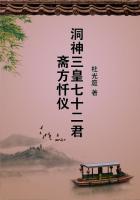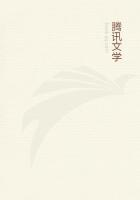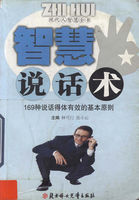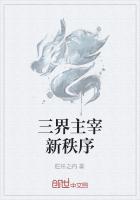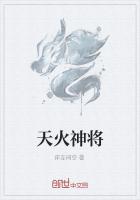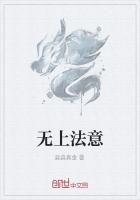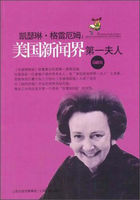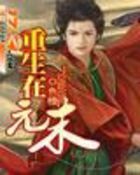What has been said suggests the question, whether it is the whole soul or only some part of it, the consideration of which comes within the province of natural science. Now if it be of the whole soul that this should treat, then there is no place for any other philosophy beside it. For as it belongs in all cases to one and the same science to deal with correlated subjects-one and the same science, for instance, deals with sensation and with the objects of sense-and as therefore the intelligent soul and the objects of intellect, being correlated, must belong to one and the same science, it follows that natural science will have to include the whole universe in its province. But perhaps it is not the whole soul, nor all its parts collectively, that constitutes the source of motion; but there may be one part, identical with that in plants, which is the source of growth, another, namely the sensory part, which is the source of change of quality, while still another, and this not the intellectual part, is the source of locomotion. I say not the intellectual part; for other animals than man have the power of locomotion, but in none but him is there intellect. Thus then it is plain that it is not of the whole soul that we have to treat. For it is not the whole soul that constitutes the animal nature, but only some part or parts of it. Moreover, it is impossible that any abstraction can form a subject of natural science, seeing that everything that Nature makes is means to an end. For just as human creations are the products of art, so living objects are manifest in the products of an analogous cause or principle, not external but internal, derived like the hot and the cold from the environing universe. And that the heaven, if it had an origin, was evolved and is maintained by such a cause, there is therefore even more reason to believe, than that mortal animals so originated. For order and definiteness are much more plainly manifest in the celestial bodies than in our own frame; while change and chance are characteristic of the perishable things of earth. Yet there are some who, while they allow that every animal exists and was generated by nature, nevertheless hold that the heaven was constructed to be what it is by chance and spontaneity; the heaven, in which not the faintest sign of haphazard or of disorder is discernible! Again, whenever there is plainly some final end, to which a motion tends should nothing stand in the way, we always say that such final end is the aim or purpose of the motion; and from this it is evident that there must be a something or other really existing, corresponding to what we call by the name of Nature. For a given germ does not give rise to any chance living being, nor spring from any chance one; but each germ springs from a definite parent and gives rise to a definite progeny.
And thus it is the germ that is the ruling influence and fabricator of the offspring. For these it is by nature, the offspring being at any rate that which in nature will spring from it. At the same time the offspring is anterior to the germ; for germ and perfected progeny are related as the developmental process and the result. Anterior, however, to both germ and product is the organism from which the germ was derived. For every germ implies two organisms, the parent and the progeny. For germ or seed is both the seed of the organism from which it came, of the horse, for instance, from which it was derived, and the seed of the organism that will eventually arise from it, of the mule, for example, which is developed from the seed of the horse. The same seed then is the seed both of the horse and of the mule, though in different ways as here set forth. Moreover, the seed is potentially that which will spring from it, and the relation of potentiality to actuality we know.
There are then two causes, namely, necessity and the final end.
For many things are produced, simply as the results of necessity. It may, however, be asked, of what mode of necessity are we speaking when we say this. For it can be of neither of those two modes which are set forth in the philosophical treatises. There is, however, the third mode, in such things at any rate as are generated. For instance, we say that food is necessary; because an animal cannot possibly do without it. This third mode is what may be called hypothetical necessity. Here is another example of it. If a piece of wood is to be split with an axe, the axe must of necessity be hard; and, if hard, must of necessity be made of bronze or iron. Now exactly in the same way the body, which like the axe is an instrument-for both the body as a whole and its several parts individually have definite operations for which they are made-just in the same way, I say, the body, if it is to do its work, must of necessity be of such and such a character, and made of such and such materials.
It is plain then that there are two modes of causation, and that both of these must, so far as possible, be taken into account in explaining the works of nature, or that at any rate an attempt must be made to include them both; and that those who fail in this tell us in reality nothing about nature. For primary cause constitutes the nature of an animal much more than does its matter. There are indeed passages in which even Empedocles hits upon this, and following the guidance of fact, finds himself constrained to speak of the ratio (olugos) as constituting the essence and real nature of things.
Such, for instance, is the case when he explains what is a bone. For he does not merely describe its material, and say it is this one element, or those two or three elements, or a compound of all the elements, but states the ratio (olugos) of their combination. As with a bone, so manifestly is it with the flesh and all other similar parts.
The reason why our predecessors failed in hitting upon this method of treatment was, that they were not in possession of the notion of essence, nor of any definition of substance. The first who came near it was Democritus, and he was far from adopting it as a necessary method in natural science, but was merely brought to it, spite of himself, by constraint of facts. In the time of Socrates a nearer approach was made to the method. But at this period men gave up inquiring into the works of nature, and philosophers diverted their attention to political science and to the virtues which benefit mankind.
Of the method itself the following is an example. In dealing with respiration we must show that it takes place for such or such a final object; and we must also show that this and that part of the process is necessitated by this and that other stage of it. By necessity we shall sometimes mean hypothetical necessity, the necessity, that is, that the requisite antecedants shall be there, if the final end is to be reached; and sometimes absolute necessity, such necessity as that which connects substances and their inherent properties and characters. For the alternate discharge and re-entrance of heat and the inflow of air are necessary if we are to live. Here we have at once a necessity in the former of the two senses. But the alternation of heat and refrigeration produces of necessity an alternate admission and discharge of the outer air, and this is a necessity of the second kind.
In the foregoing we have an example of the method which we must adopt, and also an example of the kind of phenomena, the causes of which we have to investigate.

